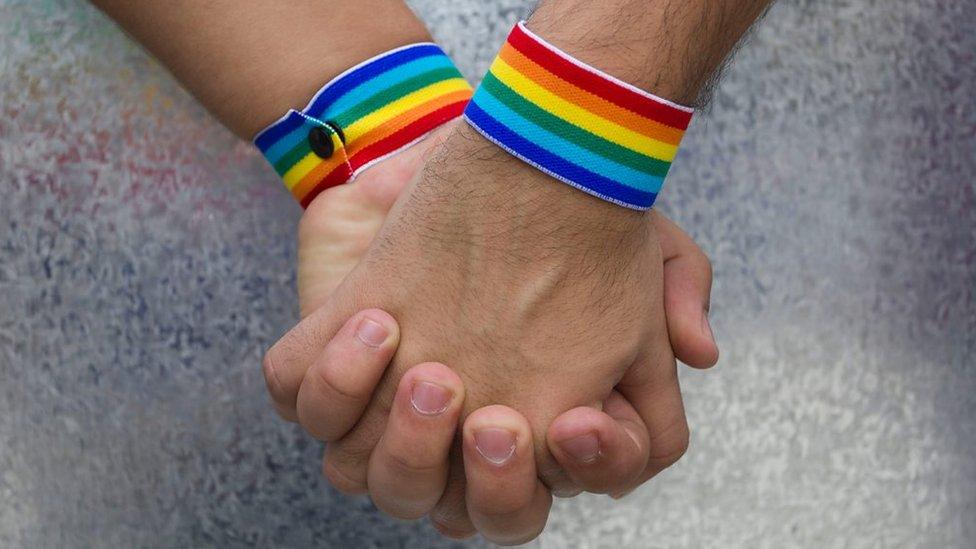LGBT History Month: Europe's first openly lesbian team gets new kit
- Published
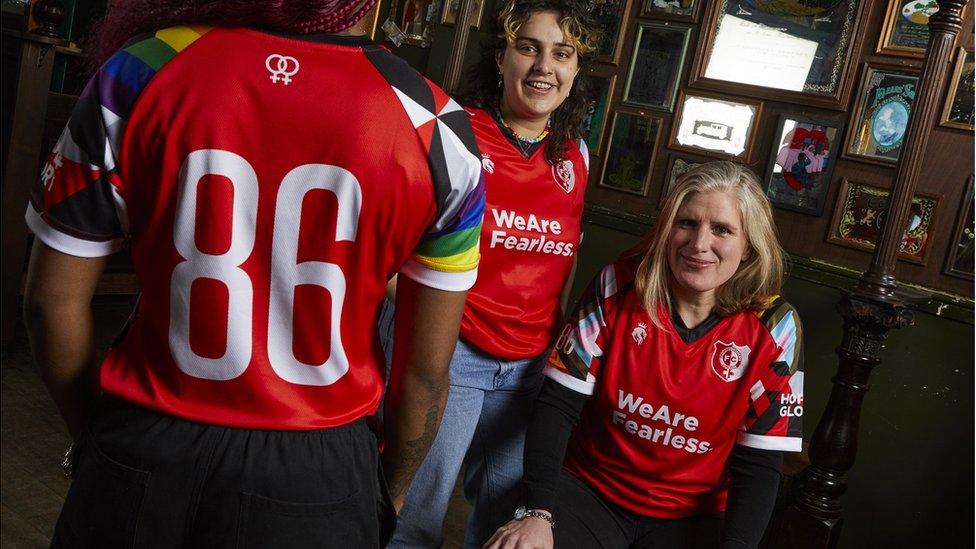
The team's new kit marks LGBT History Month
The first openly gay women's football team in Europe has launched a new kit to mark LGBT History Month.
Hackney Women's Football Club, founded in 1986, has collaborated with the creative agency WeAreFearless to design the new kit, celebrating the club as a "pioneer in the football space".
The new kit features the club's colours, which are red and black, as well as the progress flag.
The club has about 100 players across three teams.
February is also Football versus Homophobia Month and the club wanted to mark this by highlighting how it has acted as a source of support and community for LGBT women in London.
Megan Kapadia, 24, said she immediately felt welcomed after joining the club two years ago.
"I remember going to my first training session and there was me and about two or three other new players," she said.
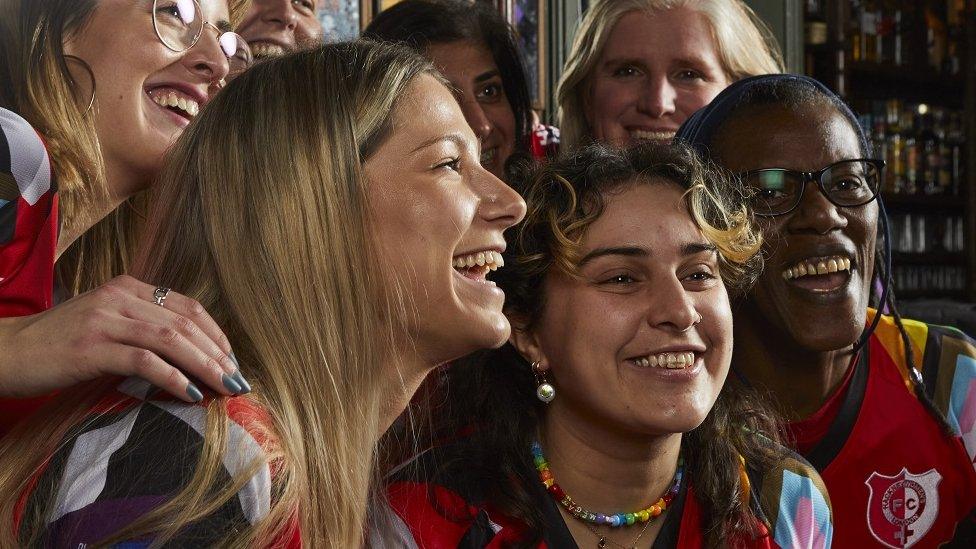
Megan Kapadia (front row centre) joined the club two years ago
"And I remember someone saying, 'who's going with this new player for the drills', and the willingness to actively involve you and get to know you really makes you feel valued."
She now acts as the club's social media manager, and said its membership was steadily growing.
"Having an inclusive space is so important for everyone and I think that's why it has grown so much and why it's so attractive to new players."
'Sense of belonging'
Chris Paouros, who was the manager of the team from 1997-2002 and again in 2011-2013, called the team "an important piece of LGBT history in this country".
She first joined after moving to London and finding it difficult to meet other gay women.
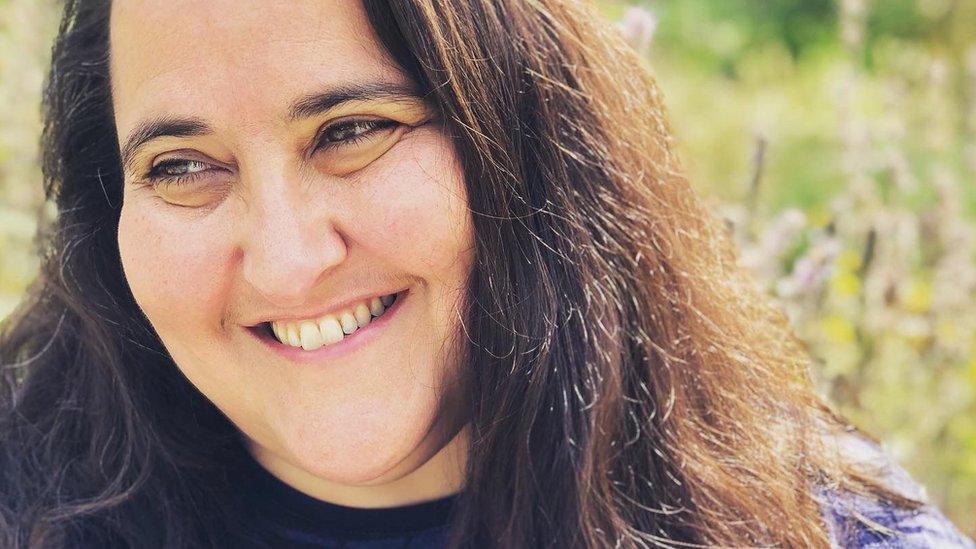
Chris Paouros (pictured) met her late wife while playing for the club
"Now I have lifelong friendships," the 49-year-old, who lives in Hackney, said.
"I even met my wife there, who has since passed away, and others have had relationships, babies and many other strong connections have been built via the football team, and to see it continuing to thrive is just wonderful."
She said the new kit showed that groups like the football club, which create a "sense of belonging", were more important than ever.
"We want to show that we are part of football too, and that discrimination does still exist and so we still need to create spaces where we can properly operate and celebrate who we are."

Follow BBC London on Facebook, external, Twitter , externaland Instagram, external. Send your story ideas to hellobbclondon@bbc.co.uk, external
- Attribution
- Published13 February 2023
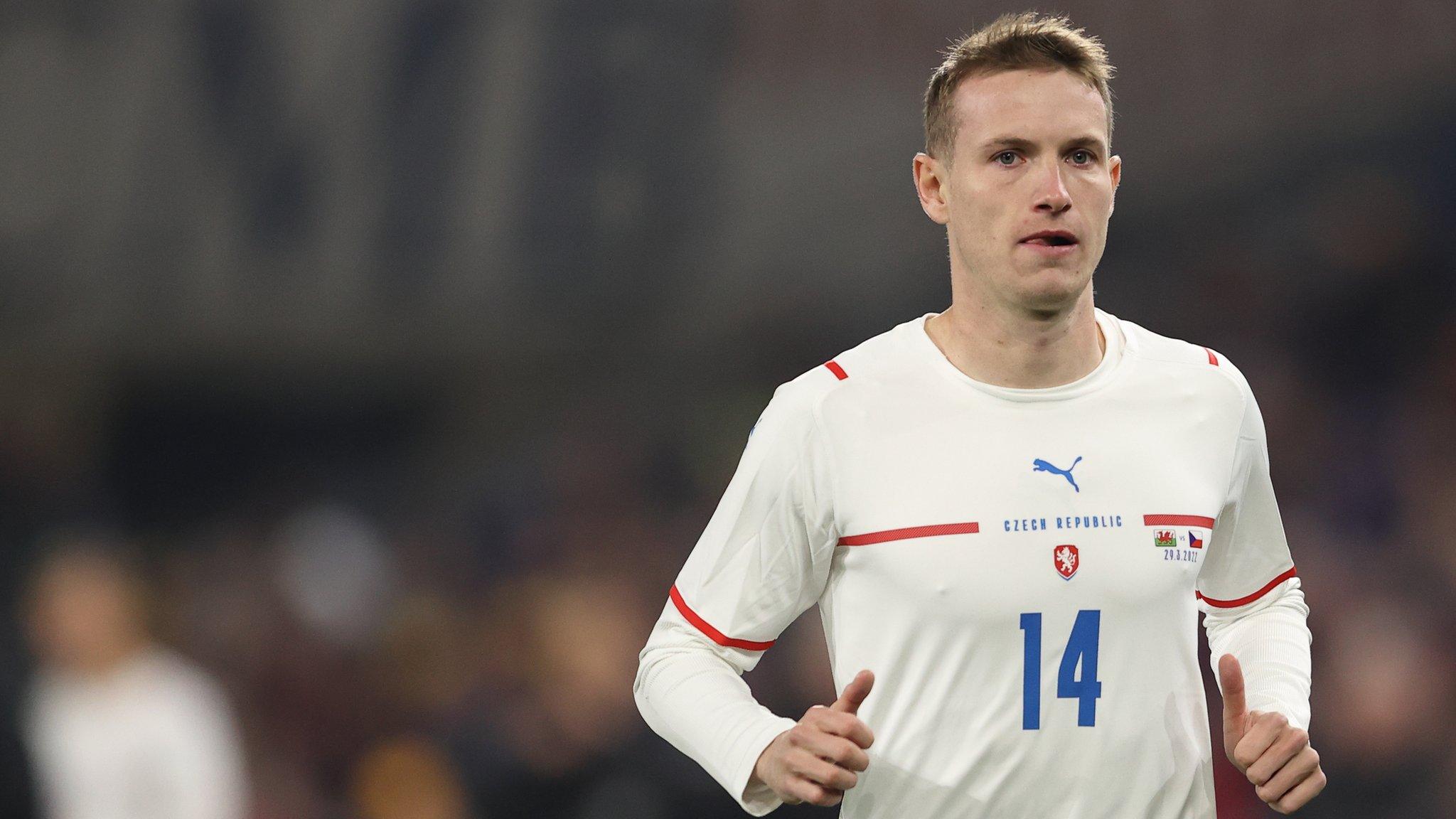
- Published2 July 2022
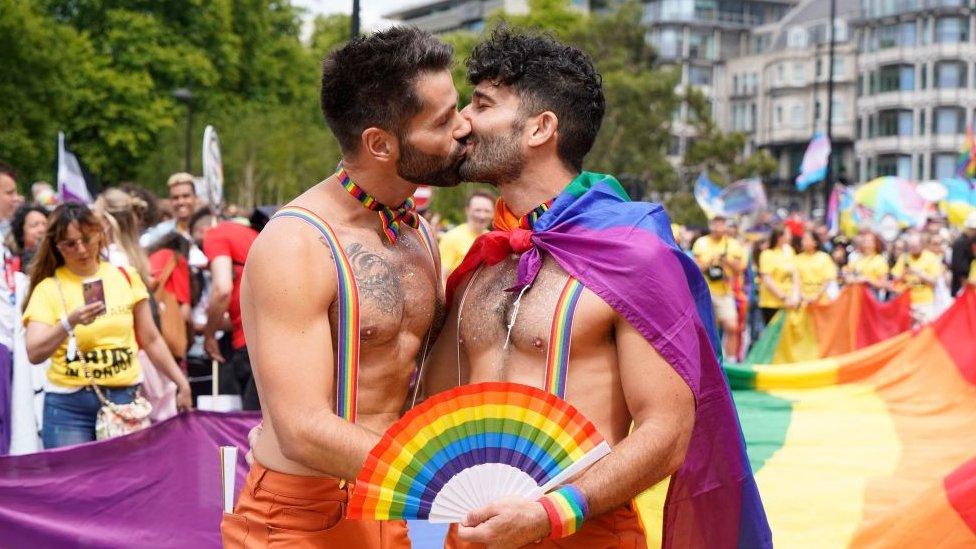
- Attribution
- Published28 February 2021
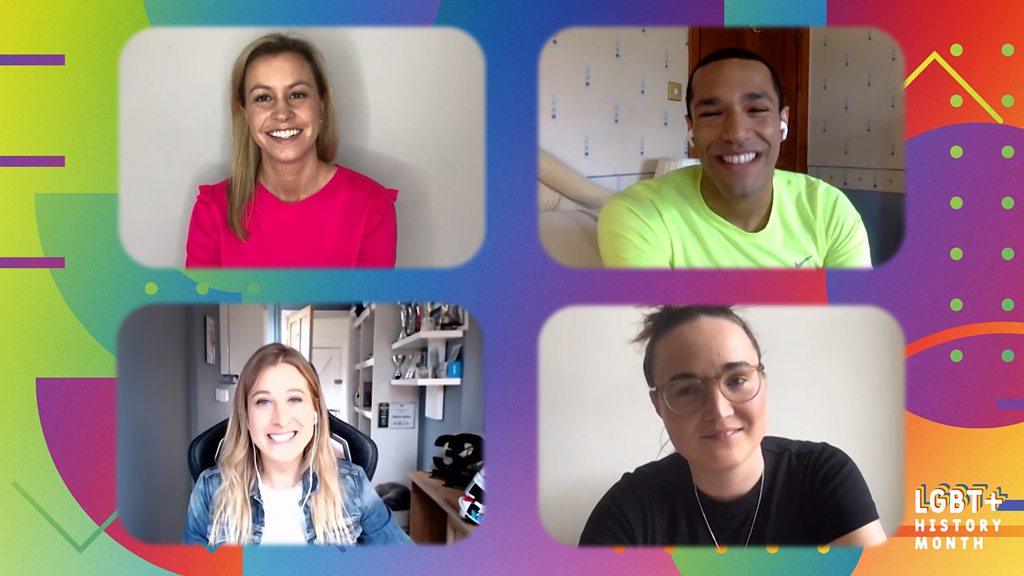
- Published4 February 2021
